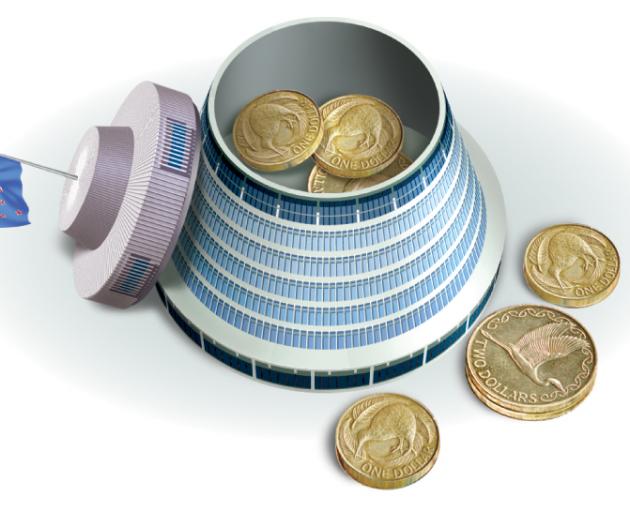
The mini-Budget — a pre-election promise — had been regularly downplayed by Ms Willis and Prime Minister Christopher Luxon since they won the Treasury seats, and it turned out that that was with good reason.
It amounted to four short press releases, and a substantial portion of them were devoted to criticising the former Labour government rather than addressing the parlous state that it had allegedly left the books in.
Little of substance was announced.
The brightline test will be dropped to two years as of July 1, but only the timing of the decision was new, as this was long-standing National policy; a "meaningful" income tax reduction was promised but no specifics or timing were advanced; and interest deductability for rental properties will return some time in the new year, at an again undeclared date.
One interesting specific Ms Willis did reveal was the decision to link main benefits to consumer price index inflation by April 1. This will be a benefit to the less well-off while inflation stays high, but if it reduces as predicted runs the risk of benefits lagging well behind wages in the future.
But other than that, most of Ms Willis’ announcements were about spending cuts the new government has made, which was largely a rehashing of previous announcements such as scrapping the Lake Onslow pumped hydro scheme.
The cuts amounted to $7.47 billion and were about $1.5 billion per annum — the previous government had initiated a $500 million per annum savings plan.
Ms Willis also said that she had instructed all ministers to identify all major capital works projects at risk of blowing their budgets so that those could be "carefully managed", and also to conduct a "health check" on medium and high risk projects.
"Headcount growth" was also to be scrutinised, a likely precursor to coalition partner Act New Zealand’s policy of reducing the number of state sector employees.
Ms Willis also announced further work would be carried out on revenue generating initiative such as taxing online casino operations and replacing the first year fees free policy with a final year fees free policy.

Ms Willis said the economy was fragile and that the government was taking steps to strengthen it.
"This mini-Budget draws a line under six years of economic mismanagement," she said.
"Today our coalition government starts a new chapter for New Zealand’s economy, with our focus on reducing cost of living pressures, delivering better value for public money and enabling private enterprise."
Labour finance spokesman Grant Robertson said yesterday’s announcement showed that the new government had no economic plan.
"Today was a test for Nicola Willis as finance minister to finally reveal what her government was going to do and how they were going to pay for it.
"She has failed that test and left New Zealanders in limbo. How the government is going to pay for the inflationary tax cuts she has promised remains a mystery she refuses to solve."
Green Party co-leader James Shaw condemned Ms Willis’ confirmation that $2 billion forecast proceeds from the emissions trading scheme would be used as a "climate dividend" to support tax reduction.
"I find it insulting, frankly, to the thousands of people who dedicate their lives to fighting for faster climate action."
Mini-Budget, at a glance
- No tax cuts until next year
- Brightline test dropped to two years as at July 1.
- Interest deductability for rental property reintroduced "in the new year".
- Benefits to be indexed to inflation.
- Review budgets for all major projects.
- $7.5 billion of operational cuts made, more to come.












